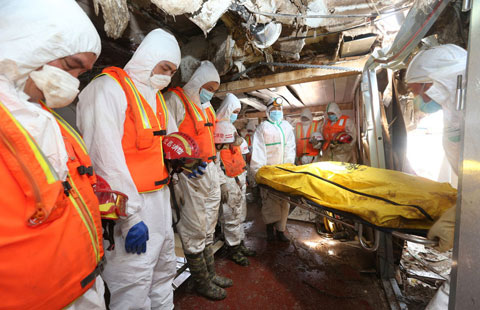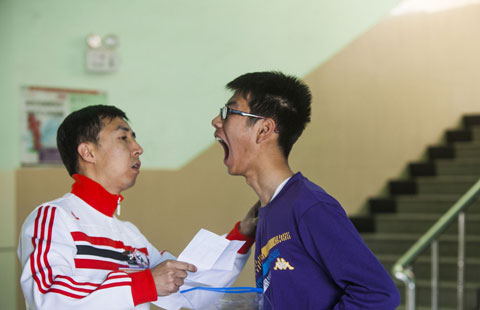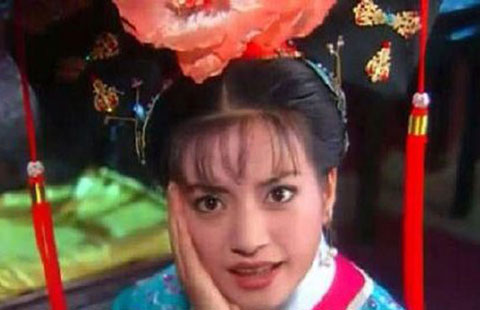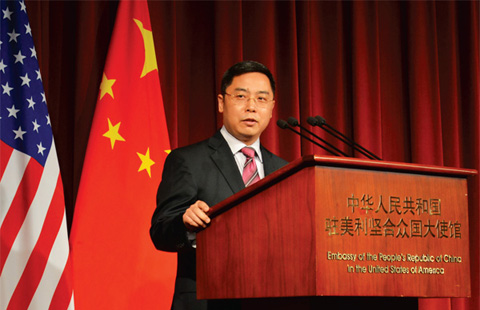Dishonesty shames the educated
Updated: 2015-06-08 07:46
(China Daily)
|
||||||||
 |
|
Jiang Yuanbin and his sister Jiang Yuzhen, the Jiang Zhengxing Steelyard shop's fifth generation, believe that honesty is essential to their professional reputation. Qiu Xinming / China Daily |
A recent report published by Shanghai Normal University, based on 9,569 valid samples from young people aged 14 to 35 in 10 Chinese cities, including Beijing, Shanghai and Guangzhou, reveals that the higher the education people receive, the less honest they are.
The survey result goes against the general perception that the more educated people are the more integrity they have, which is believed to be the real value of education. In fact, the deviation from this belief is not so strange, but it should be cause for self-reflection.
Students usually grow in an open environment, in which both positive and negative social factors have an influence on them. It is common for students to receive specialized knowledge, healthy values and be taught how to be "good" on campus, but to see in their daily lives how one can benefit from cheating, dishonesty, or "hidden rules". Such rewards for being "bad" will undoubtedly shake the positive ideals instilled in them and even persuade them that to succeed they need to act in the same way.
Strictly speaking, it is not that the more educated people are the less honesty they have. When graduates enter the world of work they soon come into contact with those who benefit from dishonesty, and so they become less confident about remaining honest. Some people, especially influential ones, set bad examples when they talk about how important honesty is but do things that are dishonest. This discrepancy between word and act also occurs on campuses, negatively affecting student's values. For example, some students with privileged backgrounds are given better chances than those with better academic performances.
It shames society that the higher educated are less honest. To change such an absurd phenomenon, the whole of society should change the practice of saying this way, but doing that way.
The above is an abridgement of a China Youth Daily article published on Friday.
- Rescuers enter Eastern Star hull in search efforts
- China mourns Yangtze shipwreck victims as search continues
- 9.42 million students sit national college entrance exam
- Students prepare to take national college entrance exams
- TV giants suspend shows for ship wreck mourning
- China, Japan reopen finance talks after delay over sour relations
- Turks vote in election set to shape Erdogan's legacy
- Protesters block road to G7 summit site
- India, Bangladesh sign historic land boundary agreement
- Putin says no need for West to fear Russia
- MERS cases rise to 50 in S.Korea with 9 more infections
- Eleven hikers killed in Malaysia quake, eight still missing

 Rescuers mourn victims on seventh day since Eastern Star disaster
Rescuers mourn victims on seventh day since Eastern Star disaster
 Rescuers enter Eastern Star hull in search efforts
Rescuers enter Eastern Star hull in search efforts
 Gaokao held across China
Gaokao held across China
 Man sues actress for staring at him
Man sues actress for staring at him
 Students prepare to take national college entrance exams
Students prepare to take national college entrance exams
 Across America (May 29- June 4)
Across America (May 29- June 4)
 Operation underway to turn the ship over
Operation underway to turn the ship over
 Prayers held for ship passengers
Prayers held for ship passengers
Most Viewed
Editor's Picks

|

|

|

|

|

|
Today's Top News
Heavyweight Zhang wins unanimous decision
China mourns Yangtze shipwreck victims as search continues
China signs $50m agreement with FAO to support developing countries
9.42 million students sit national college entrance exam
Death toll jumps to 396
as hopes of finding any
survivor in cruise fade
China, Japan reopen finance talks after delay over sour relations
Hacking claim isn't responsible, Beijing says
Startups return to China to battle pollution
US Weekly

|

|







